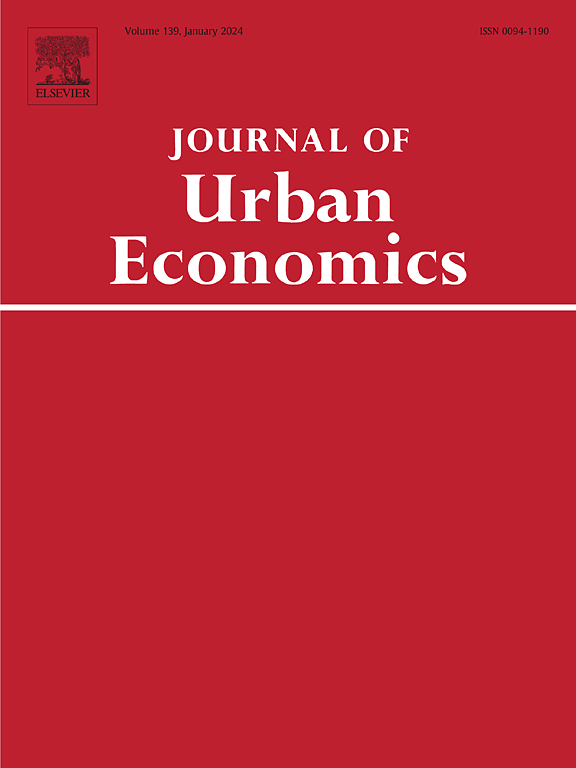Tenant rights, eviction, and rent affordability
IF 4.8
1区 经济学
Q1 ECONOMICS
引用次数: 0
Abstract
We use state-level differences in landlord-tenant laws to estimate their impact on rental housing affordability. We construct a Tenant Rights Index (TRI) spanning 1997 to 2016 to assess its effects on eviction rates and rental market outcomes. Increased TRI correlates with higher median rent, higher rent-value ratio, and increased homelessness. To rationalize our findings, we develop a search and matching model of the rental market with free entry of both landlords and tenants, and an endogenous eviction mechanism. In our environment, more stringent eviction regulations reduce evictions and raise the relative demand for housing. However, stricter regulations also lead to higher rents and lower vacancy rates. We calibrate the model to the US rental market to quantitatively assess the mechanism in our model. An increase in eviction costs has a larger impact on the eviction rate and market tightness, with a relatively smaller effect on rents and vacancy rates. Our findings suggest that while stringent regulations may reduce evictions, they could lead to unintended consequences such as inflated house prices and heightened homelessness. Policymakers must carefully balance these potential drawbacks against the goal of tenant protection to avoid exacerbating existing housing affordability challenges.
租户权利,驱逐和租金负担能力
我们使用州一级的房东-租客法律差异来估计它们对租赁住房负担能力的影响。我们构建了1997年至2016年的租户权利指数(TRI),以评估其对驱逐率和租赁市场结果的影响。增加的TRI与更高的中位数租金、更高的租金价值比和更多的无家可归者相关。为了合理化我们的研究结果,我们建立了一个房东和租客自由进入的租赁市场搜索和匹配模型,以及一个内生的驱逐机制。在我们的环境中,更严格的驱逐规定减少了驱逐,并提高了对住房的相对需求。然而,更严格的监管也导致了更高的租金和更低的空置率。我们将模型校准为美国租赁市场,以定量评估我们模型中的机制。驱逐成本的增加对驱逐率和市场紧张程度的影响较大,而对租金和空置率的影响相对较小。我们的研究结果表明,虽然严格的法规可能会减少驱逐,但它们可能会导致意想不到的后果,如房价上涨和无家可归现象加剧。政策制定者必须仔细权衡这些潜在的缺点和保护租户的目标,以避免加剧现有的住房负担能力挑战。
本文章由计算机程序翻译,如有差异,请以英文原文为准。
求助全文
约1分钟内获得全文
求助全文
来源期刊

Journal of Urban Economics
Multiple-
CiteScore
10.60
自引率
4.80%
发文量
64
期刊介绍:
The Journal of Urban Economics provides a focal point for the publication of research papers in the rapidly expanding field of urban economics. It publishes papers of great scholarly merit on a wide range of topics and employing a wide range of approaches to urban economics. The Journal welcomes papers that are theoretical or empirical, positive or normative. Although the Journal is not intended to be multidisciplinary, papers by noneconomists are welcome if they are of interest to economists. Brief Notes are also published if they lie within the purview of the Journal and if they contain new information, comment on published work, or new theoretical suggestions.
 求助内容:
求助内容: 应助结果提醒方式:
应助结果提醒方式:


